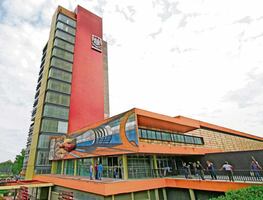Más Información

Titular de Jufed participa en inauguración del Año Judicial Interamericano 2025; tratará la situación que atraviesa el Poder Judicial en México

Semar y FGR aseguran laboratorios de metanfetamina en Tlaxcala; detienen a 14 personas con drogas y armas

PAN respalda exigencia ciudadana de paz en Sinaloa; “autoridades han sido incapaces de hacerle frente a esta circunstancia”

Diputada del PRI propone reforma para que servicio social cuente como experiencia laboral; insiste en hacerlo obligatorio
Mexicans
faced with a fuel shortage are turning to bikes and scooters , generating business for startups that rent alternative rides , but straining operations for ride-hailing service Uber in some cities.
The fuel shortages came after President Andrés Manuel López Obrador closed some vulnerable pipelines in a crackdown on fuel theft. There have been long lines at gas stations this week in several states.
Uber
said the fuel shortage posed challenges in some cities in the central state of Guanajuato and the Western state of Michoacán . Users are requesting fewer trips in those cities, but with fewer Uber drivers on the road, demand has increased for those who are working, said company spokesperson, Saúl Crespo.
“Although the temporary closure of some gas stations can affect the demand for available vehicles, we are working to make sure our driving partners do not see their profits affected,” Crespo said in a statement, adding Uber will take steps to hold prices steady.
Spanish ride-hailing company Cabify said its operations had also been affected, while Chinese firm Didi Chuxing said it had not been impacted.
For startups peddling bikes and scooters , the crisis touched off a flurry of new business.
Mobility as a Service for Latin America
, a trade group representing firms such as Chinese bike-sharing company Mobike and California scooter outfit Bird , reported a spike in demand as people who normally drive scramble for alternatives.
“It’s a big opportunity for those companies to show that new alternatives can be substitutes for traditional cars, for short distances,” said Miguel Abad, who leads public affairs for the group.
Mobike
, which entered Mexico with its fleet of bright orange bikes last year, said its trips jumped an additional 10% above normal growth over the past few days.
Jetty, a Mexico City-based van-sharing service , has seen a 10% rise in demand and expects the trend to intensify in the coming days, said Chief Executive Cristina Palacios. Starting on Monday, the company will temporarily boost service on its main routes, she added.
“There’s still this risk that we might not have enough gas to meet our demand,” she said. “But up until now, we haven’t had any problems.”
For Grin , a Mexico City-based scooter company , demand had more than doubled and was climbing further on Thursday, co-founder Sergio Romo said.
Mexico Cit
y's Metrobús system has also been an alternative, its users have increased 7% in the last days, according to Mexico City's mayor, Claudia Sheinbaum .
Currently, it's calculated that the Metrobús transports 1.5 million users every day.
Claudia Sheinbaum
explained Mexico City 's metro , which transports 5.5 million users every day, hasn't increased its number of users in the last days.
gm







